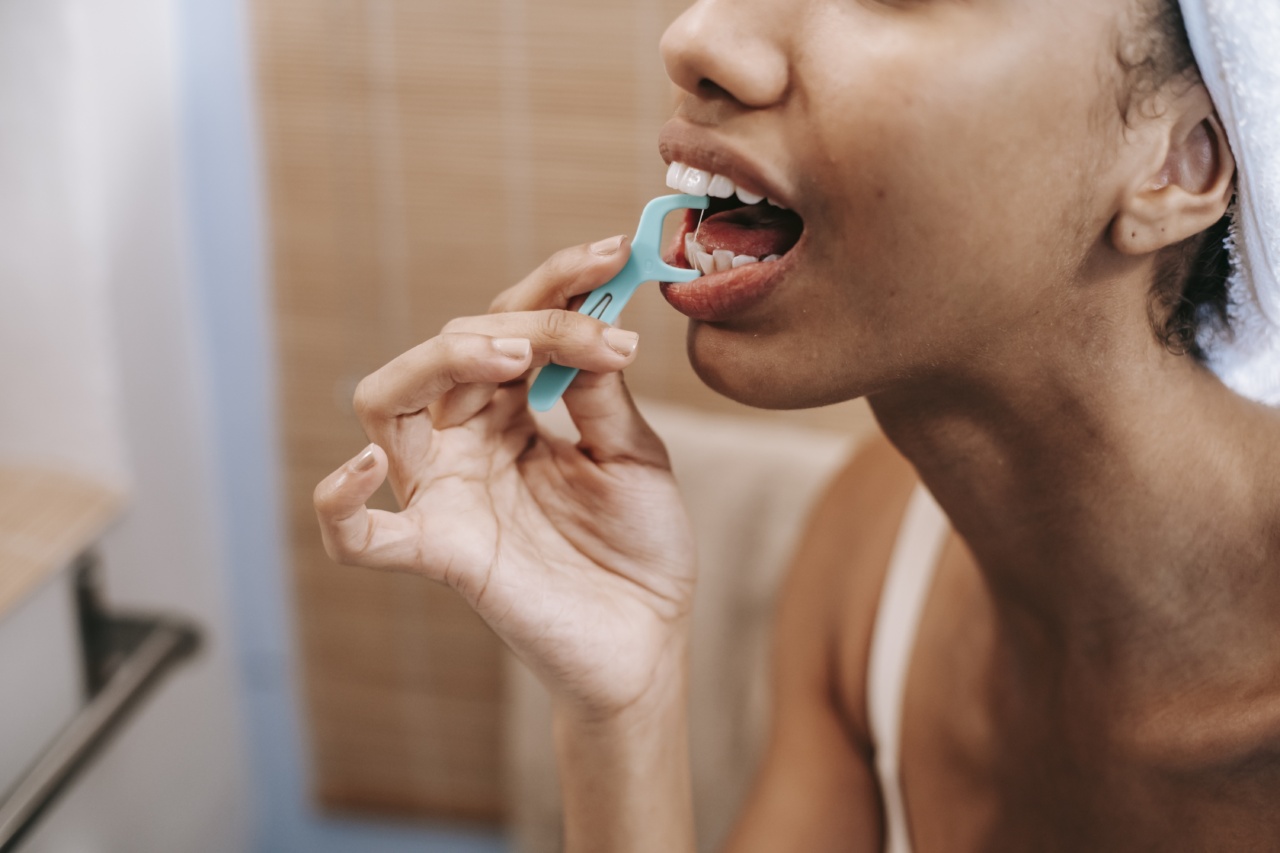Oral cancer is a significant health concern affecting people worldwide. While it is essential for everyone to take preventive measures, women also have unique risk factors that they need to address.
One significant aspect that can significantly contribute to oral cancer prevention is diet. By adopting specific dietary strategies, women can reduce their risk of developing oral cancer and maintain overall oral health.
1. Include plenty of fruits and vegetables in your diet
Fruits and vegetables are not only great for overall health but are also beneficial for oral health. They are rich in antioxidants, vitamins, and minerals that help combat free radicals and boost the immune system.
Incorporating a variety of fruits and vegetables, such as berries, leafy greens, citrus fruits, and cruciferous vegetables, can help prevent oral cancer.
2. Consume foods rich in antioxidants
Antioxidants play a vital role in protecting the body’s cells from damage caused by free radicals. Foods rich in antioxidants, such as berries, green tea, dark chocolate, and turmeric, can help prevent oral cancer.
Including these foods in your diet can enhance your body’s ability to fight against the development of cancerous cells.
3. Limit your intake of processed foods
Processed foods are often high in sugar, salt, unhealthy fats, and additives. These can contribute to inflammation, weaken the immune system, and increase the risk of oral cancer.
Opt for whole, unprocessed foods instead, such as lean meats, whole grains, legumes, and fresh fruits and vegetables.
4. Avoid tobacco in all forms
Tobacco in any form, including cigarettes, cigars, and smokeless tobacco, significantly increases the risk of developing oral cancer.
The harmful chemicals present in tobacco products can damage the cells in the mouth and lead to the growth of cancerous cells. It is crucial to quit tobacco altogether to reduce the risk of oral cancer.
5. Limit alcohol consumption
Excessive alcohol consumption is associated with an increased risk of oral cancer. It is essential to drink alcohol in moderation or avoid it altogether.
If you choose to drink, limit your intake and opt for healthier alternatives like red wine, which contains antioxidants that may have potential health benefits.
6. Maintain good oral hygiene
Practicing good oral hygiene is vital for preventing oral cancer. Brushing your teeth twice a day, flossing regularly, and visiting your dentist for routine check-ups can help detect any potential issues early on.
Poor oral hygiene can lead to the development of oral diseases, including oral cancer.
7. Consume foods rich in folate
Folate-rich foods, such as leafy greens, legumes, citrus fruits, and fortified cereals, can help prevent oral cancer.
Folate plays a significant role in DNA repair and synthesis, which is crucial for maintaining healthy cells and reducing the risk of cancer.
8. Increase your intake of omega-3 fatty acids
Omega-3 fatty acids have anti-inflammatory properties and help promote overall health.
Foods rich in omega-3 fatty acids, such as fatty fish (salmon, mackerel, sardines), walnuts, flaxseeds, and chia seeds, can potentially reduce the risk of oral cancer and support optimal oral health.
9. Limit exposure to sunlight
Prolonged and unprotected exposure to the harmful rays of the sun can increase the risk of lip cancer, a form of oral cancer.
It is crucial to use appropriate sun protection measures like wearing a wide-brimmed hat and applying a broad-spectrum sunscreen to the lips to reduce the risk of developing oral cancer.
10. Be mindful of your overall health
Factors such as hormonal changes during menopause, poor nutrition, obesity, and certain medical conditions can contribute to the risk of developing oral cancer in women.
It is essential to maintain a healthy lifestyle, manage stress, exercise regularly, and seek appropriate medical care to reduce the risk of oral cancer and other health problems.





























